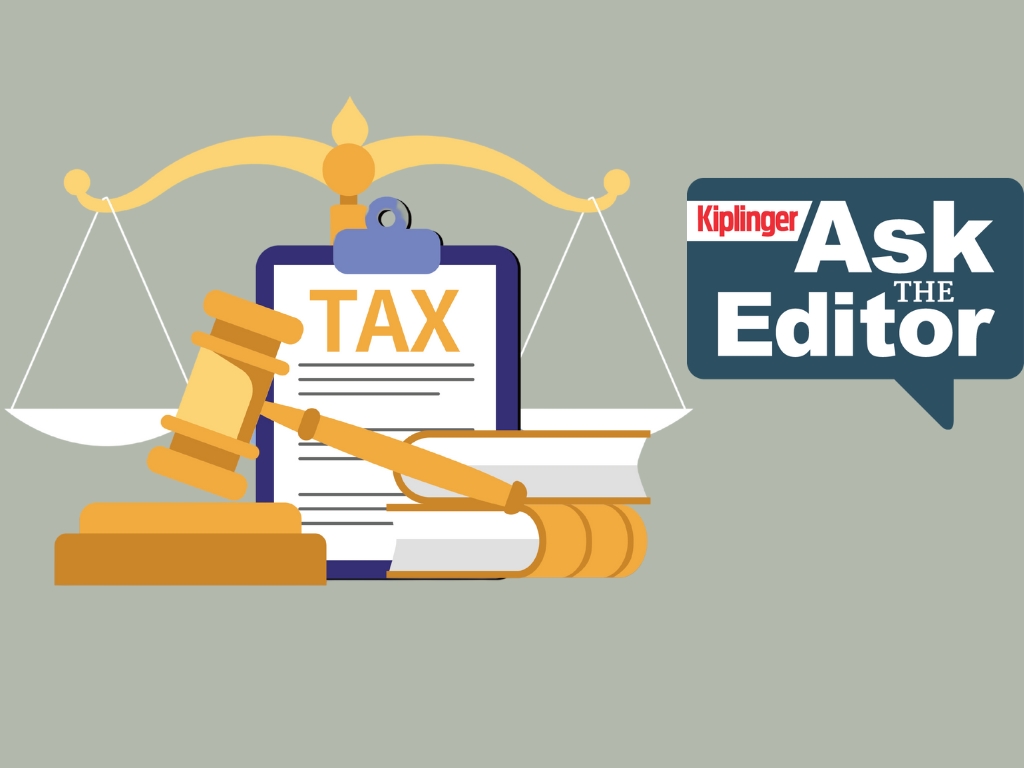Every week in the Ask the Editor series, Kiplinger’s tax letter editor Joy Taylor answers questions about topics submitted by readers. This week she is looking at questions related to House Pass “One Big Beautiful Bill.” (Get a free issue of Kiplinger Tax Letter or subscription.)
1. Legislative forecast
Question: Now, the House has passed one big beautiful bill, so when will the Senate pass it?
Joy Taylor: During a delicious time on May 22nd, the house passed one big beautiful bill with 215-214 votes. The proposal will extend many of the expired tax provisions in the 2017 Tax Cuts and Employment Act, strengthen them in several instances, provide brand new tax credits, eliminate clean energy credits for individuals and businesses, provide Medicaid cuts, and offset the bill’s costs.
It’s time for the Senate. And the process of passing through the upper chamber is not easy. Republican senators have already said they will make changes to the package. For example, some people don’t like the level of Medicaid cost reductions, others want to make certain business tax changes permanent, while others oppose large cuts to clean energy credits. It also has an impact on the federal deficit. The bill is estimated to increase the deficit by $2.8 trillion over a decade. After the Senate makes changes, the house must approve them.
Republicans are pushing President Trump to acquire the completed bill by July 4th, but this compression time frame appears unlikely. A more likely scenario is for the Senate final vote by late July.
2. Impact on Muni bonds
Question: Does the tax bill passed in the House give taxable interest on state and municipal bonds (Munis)?
Joy Taylor: No. Tax credits are safe for now. Interest earned in Munis is tax-free for federal income tax purposes. Some Republicans have raised the idea of eliminating interest exemptions as an option to raise revenue to offset the bill’s other proposed tax easing costs. However, the lobbying push by affected groups and industries helped save breaks. Also, states and local governments rely on Munis to fund all kinds of infrastructure projects.
Subscribe to Kiplinger’s personal finances
Be smarter, better informed investors.
Save up to 74%
Sign up for Kiplinger’s free e-newsletter
Remember profits and prosperity with expert advice on investments, taxes, retirements, personal finances and more – directly to email.
Profit and prosperity with the advice of the best experts – directly to your email.
Best Tax Software Transactions Today
3. Impact on Social Security Benefits
Question: I have to receive Social Security benefits and pay federal income tax on some of the benefits. Do House Passed Invoices exempt Social Security benefits?
Joy Taylor: Many Social Security Beneficiaries pay federal income taxes on up to 85% of their benefits, depending on their provisional income. President Trump vowed to end the tax. However, the process Republican lawmakers use to pass the bill by circumventing the 60-vote filibuster rule in the Senate will not allow this income tax change to Social Security benefits. So the answer to your specific question is that your Social Security benefits will be taxed normally for federal income tax purposes.
But Congressional Republicans have found alternatives to provide tax cuts for seniors. House Passed Bill provides a $4,000 bonus deduction to filers age 65 and over. Individuals over the age of 65 who receive the standard deduction will add an additional $4,000 to the standard deduction. Couples who marry a spouse over the age of 65 can deduct $8,000. Filers who are 65 years of age or older and are items made into Schedule A will also receive a deduction. The proposal will be effective first on returns submitted next year for 2025 and 2025 returns that end after 2028.
However, not all seniors qualify for this bonus deduction. There is an income limit. The deduction begins phase-out of taxpayers whose adjusted gross revenue exceeds $150,000 in joint revenue and exceeds $75,000 in single and internal rates of return.
4. Who can claim a $4,000 bonus deduction?
Question: My wife is a federal employee who has both retired. You will receive a pension under the Civil Service Retirement System (CSRS) but will not receive Social Security benefits. Can I still claim the proposed $4,000 bonus deduction included in the House Pass bill despite not receiving Social Security benefits?
Joy Taylor: Yes, one big beautiful invoice will be finalized and if you are over 65 years old, you can claim a bonus $4,000 deduction (per spouse) subject to the above gradual income outs. You do not need to receive Social Security benefits to receive the deduction.
About asking the editor for the tax edition
Kiplinger Tax Letter and Kiplinger Letter subscribers can ask pleasure questions about tax topics. You can find details on how to submit questions with Kiplinger Tax Letter and Kiplinger Letter. (Subscribe to Kiplinger Tax Letter or Kiplinger Letter.)
We have already received many questions from our readers about topics related to the household tax base, IRA contributions and distributions, and more. In the future, we’ll ask some of these editors’ roundups. So, continue with those questions!
Not all questions submitted will be published, and some may be combined with other similar questions and answers by editor. In this Q&A series, the answers provided by editors and experts are for general information purposes only. Although we take reasonable precautions to ensure that you provide accurate answers to your questions, this information is not intended to constitute and is not intended to constitute independent financial, legal, or tax advice. You should not act or refrain from acting based on the information provided by this feature. You should consult your financial or tax advisor for any questions you may have regarding the issues discussed in this article.
